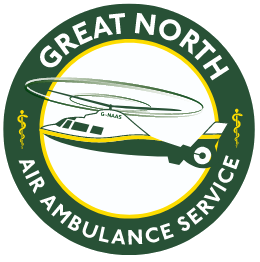Our newly recruited doctors and paramedics were put through their paces in a week-long training course in Cumbria recently.
The Pre-Hospital Emergency Crew Course (PHEMCC) delivered by senior clinicians at GNAAS, features a mix of classroom learning and realistic training scenarios involving multidisciplinary team working to help prepare participants with the skills they need to thrive in a pre-hospital environment and deliver the best care possible to their patients.
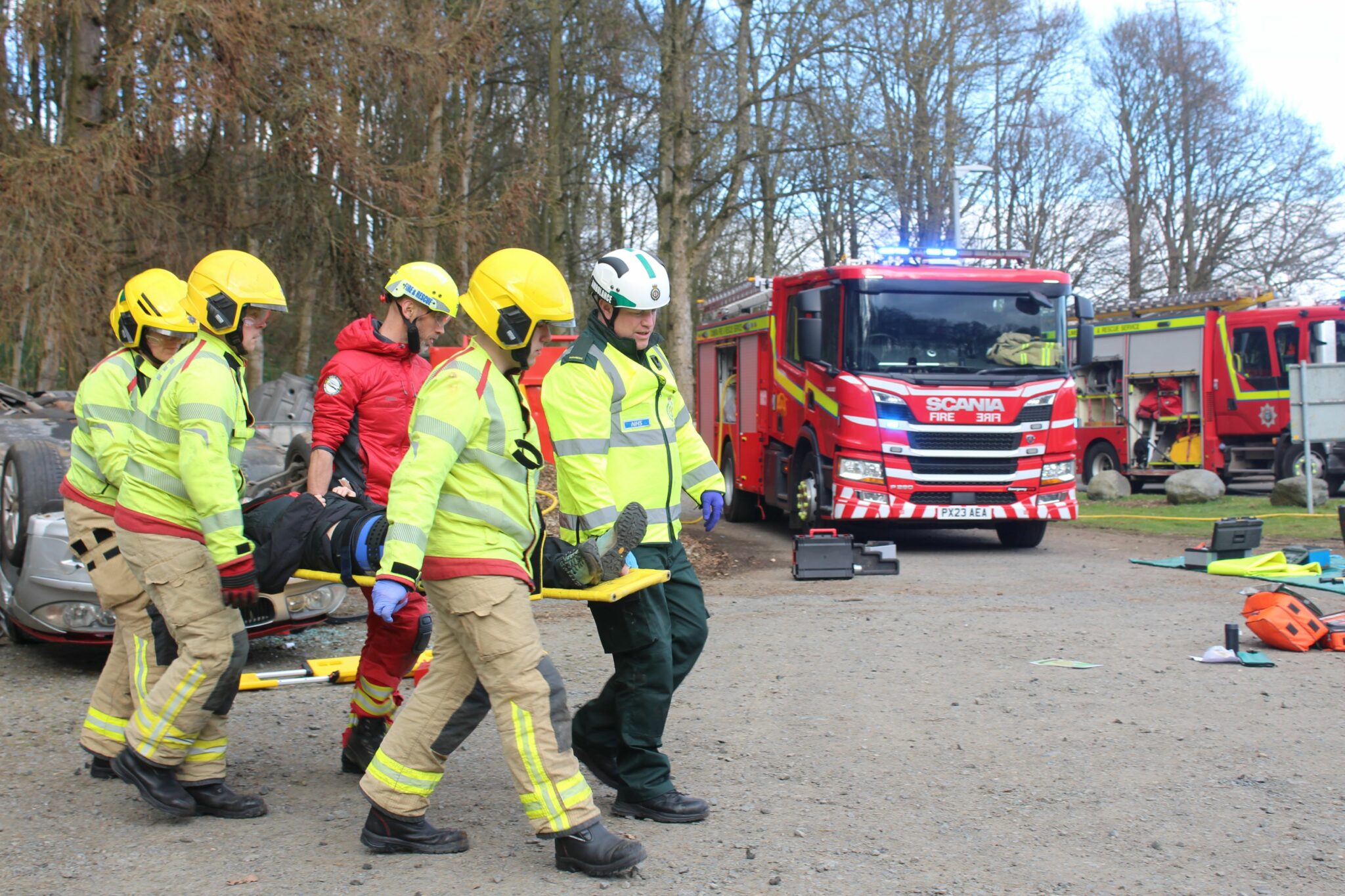

The course usually runs for two weeks and has previously been attended by clinicians from around the world, however a condensed one-week version was recently delivered solely to paramedics and doctors who work at GNAAS.
Our critical care team often work closely with multiple agencies when responding to incidents, so it was important to get them involved in the training exercises to ensure they can coordinate an effective response in their ‘real life’ work.
At the start of the week the Keswick Mountain Rescue Team kindly offered their base for the team to learn about surgical skills and how to safely anaesthetise a patient in the pre-hospital environment. Topics covered included decision-making processes and safety standards, drug and equipment familiarity, and post-intubation management.
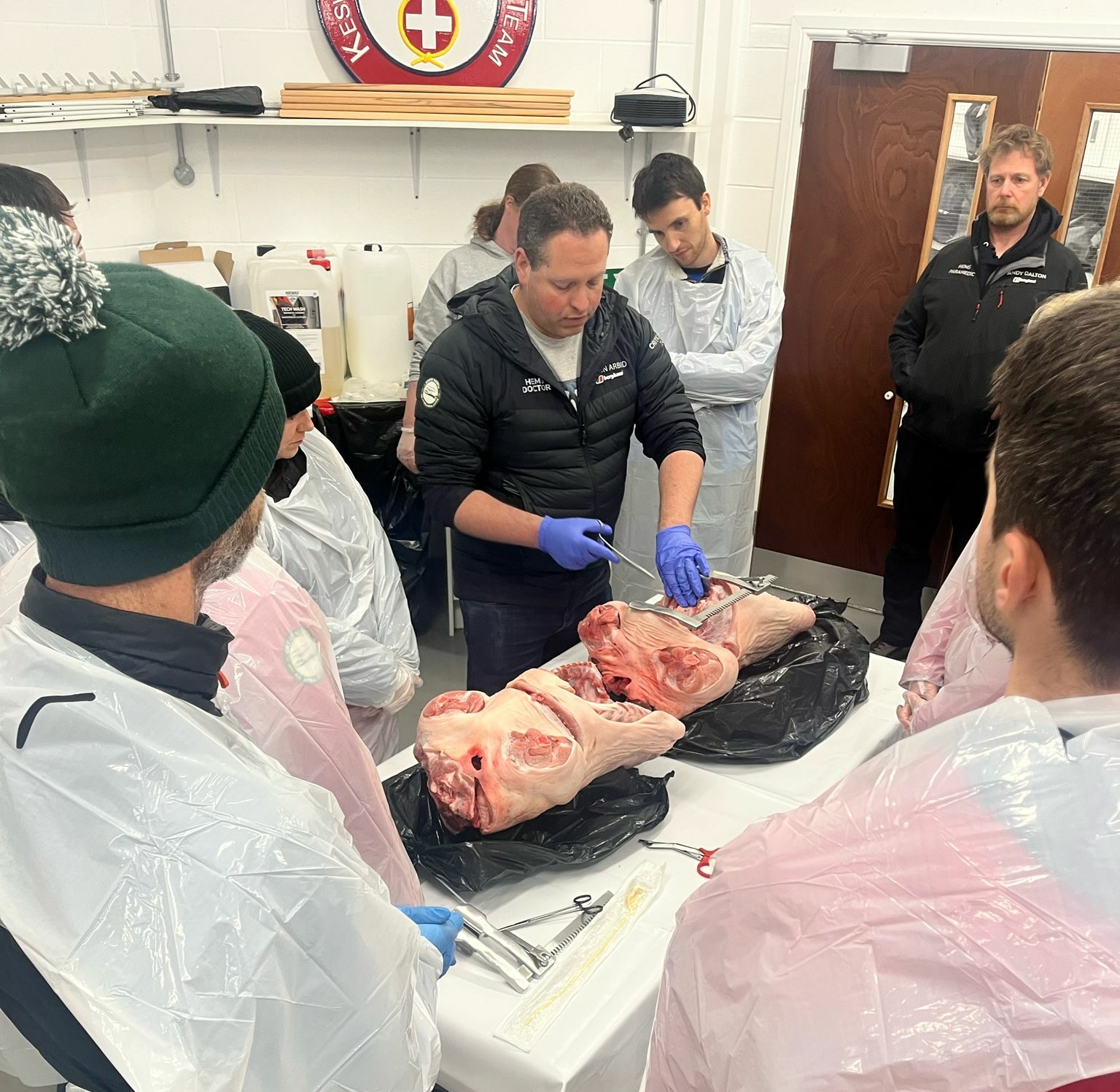

This was followed by a day dedicated to maternity and paediatric cases, which is not something our team see every day, but it is important they maintain a level of competence and knowledge in these areas, for those times when they are faced with treating a child or a pregnant person.
Both lectures and skill stations were utilised to cover the types of scenarios that our team could encounter with maternity patients include premature deliveries, major blood loss, challenging births, eclampsia, and medical emergencies, such as a cardiac arrest.
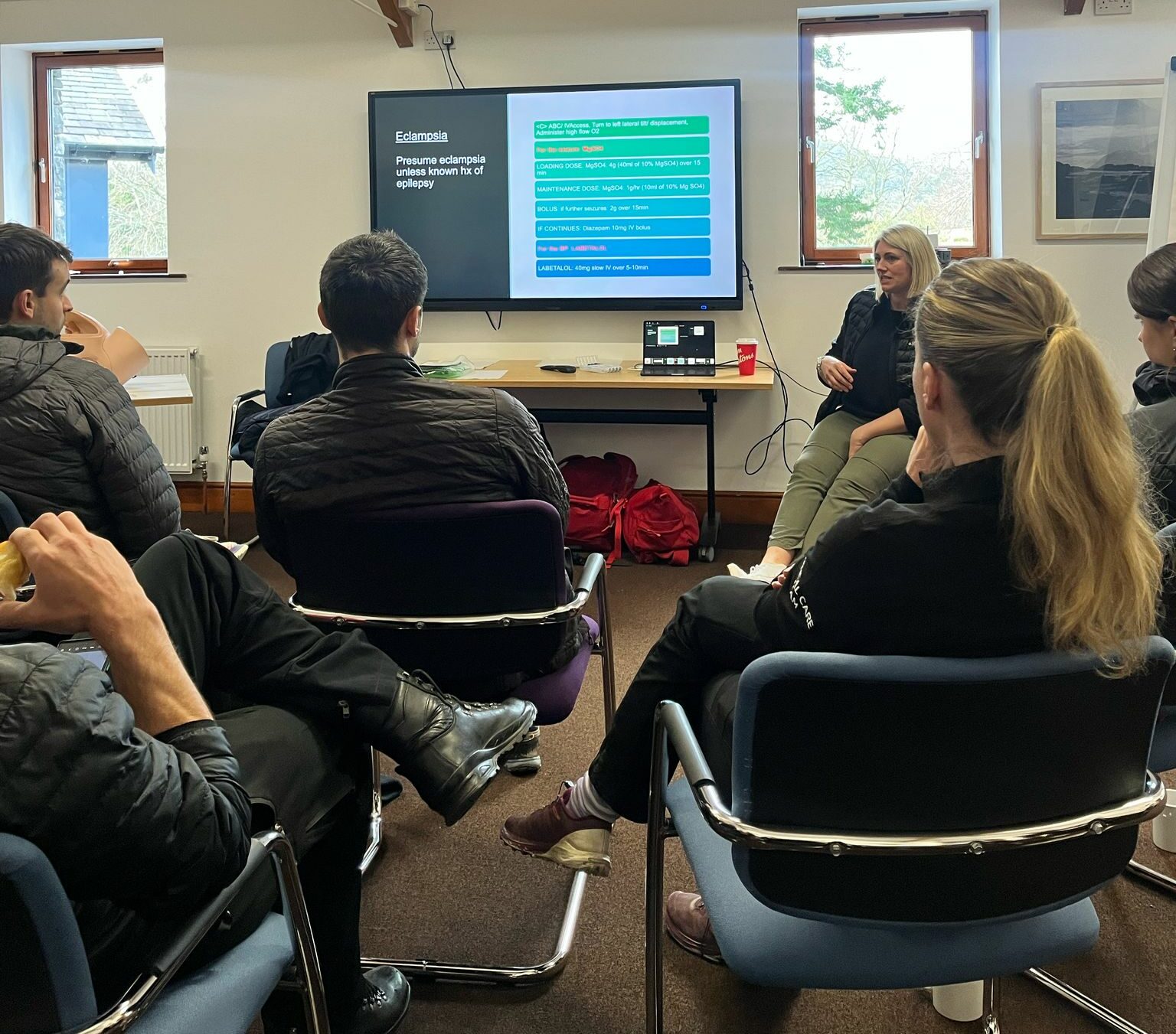

There was also a look at the equipment needed when the team are on scene treating a child, the dosages to give paediatric patients, and the differences between adult and paediatric care.
Midway through the week the team travelled over to Sellafield, a large nuclear site near Seascale. Our charity have a long history with Sellafield, as not only have our team responded to incidents in this area, but employees of Sellafield have supported our charity over the years through various fundraising activities.
The day at Sellafield focused on firearms training and a range of scenarios were set up by firearms officers using manikins and actors, which focused on different injuries that a critically injured patient may have.
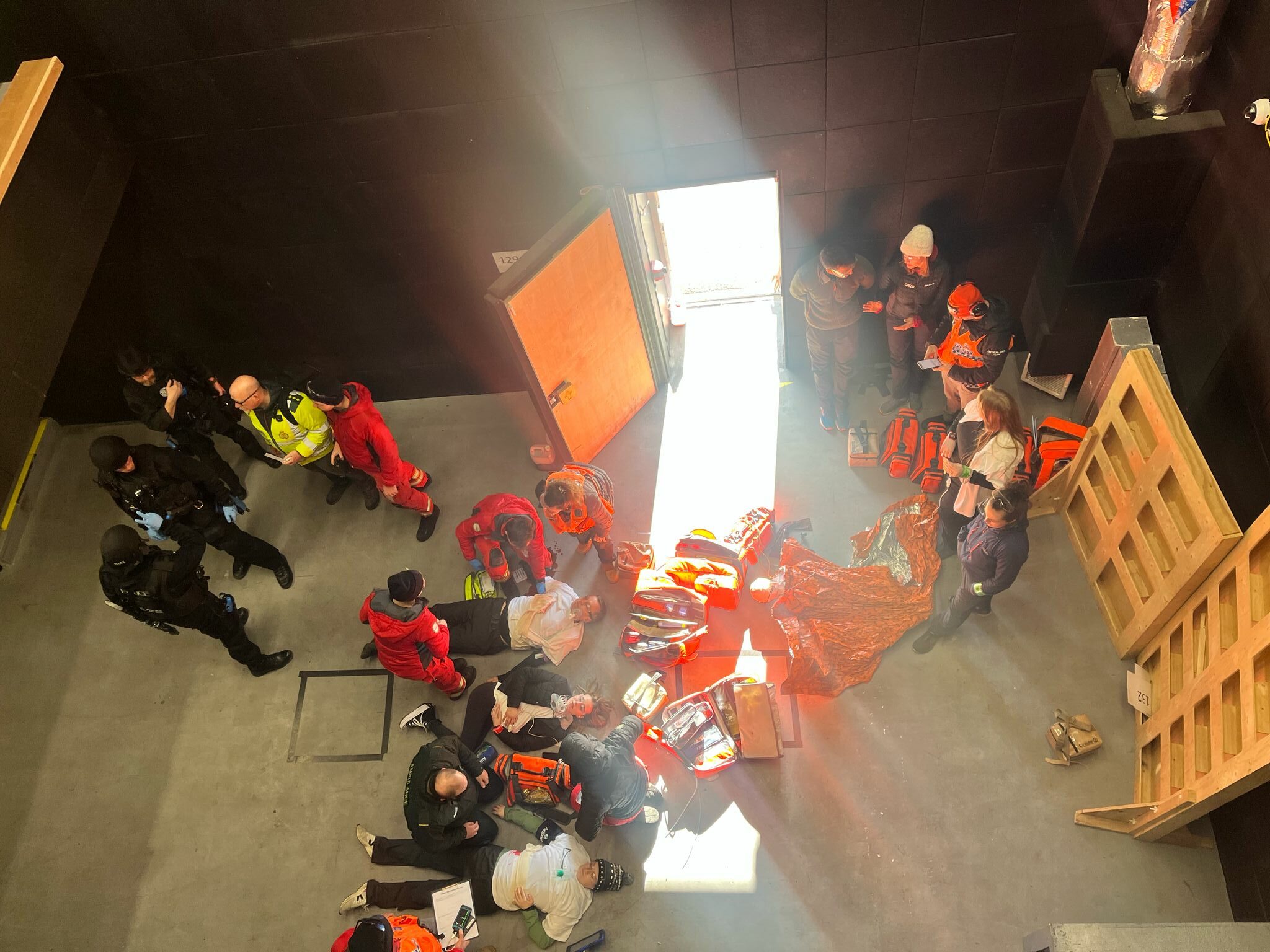

Our team worked alongside the officers and North West Ambulance Service (NWAS) paramedics to treat the ‘patients’ and learn how to communicate effectively in an often stressful and pressured situation.
These types of scenarios were amplified at Penrith Fire Station at the end of the week when the training course culminated in a multi-agency exercise which simulated a major road traffic collision.
Firefighters from Cumbria Fire & Rescue Service joined GNAAS and NWAS to get hands-on experience helping to treat several casualties, who were played by acting volunteers.
The scenario evolved as the day went on, challenging the teams to adapt to a live situation with unpredictable new elements to consider.


Firefighters accessed damaged vehicles using cutting equipment, freeing casualties, and then assisted with care to support NWAS and GNAAS.
The casualties displayed a variety of serious injuries that required advanced medical care, including anaesthesia, surgical procedures and advanced pain relief and sedation.
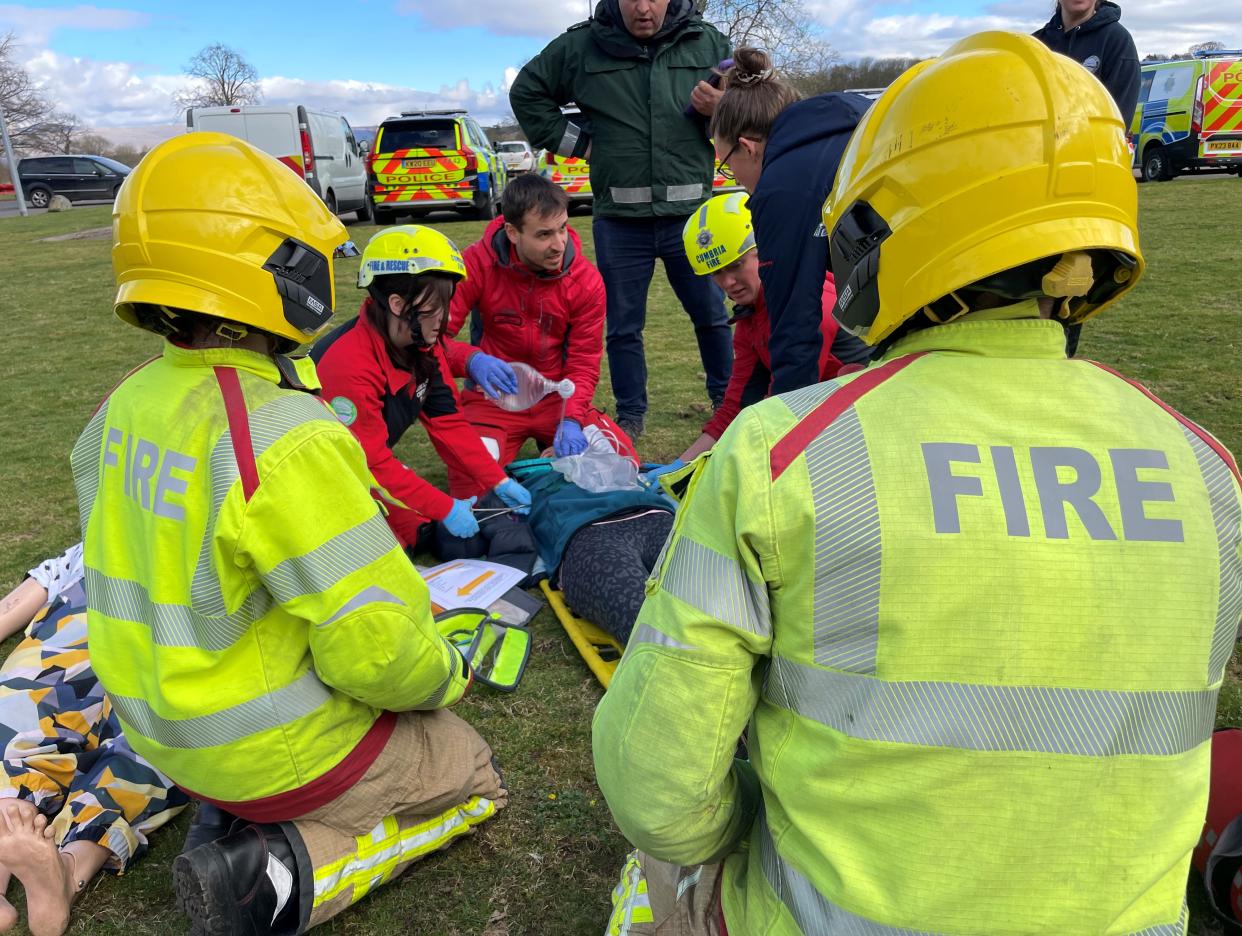

Both live actors and manikins were used in the scenario and surgical procedures were carried out on medical meat to make it as realistic possible.
Following a successful week training our doctors and paramedics of the future, a two-week PHEMCC course in both the North East and Cumbria is currently in the works, so keep an eye out on our website and social media for further updates.

